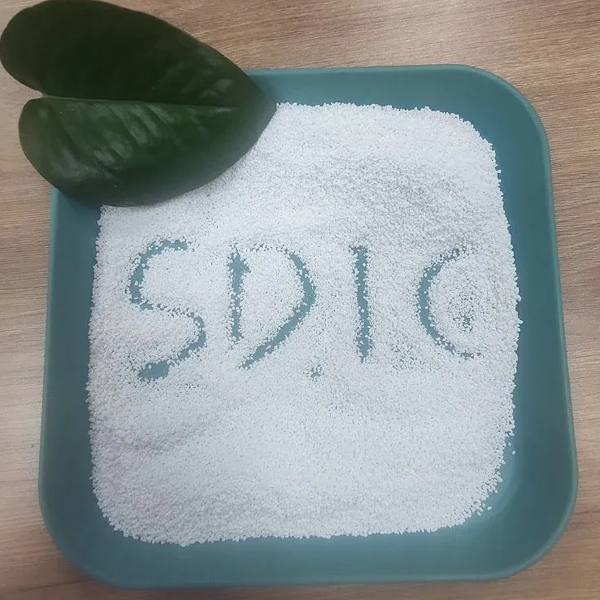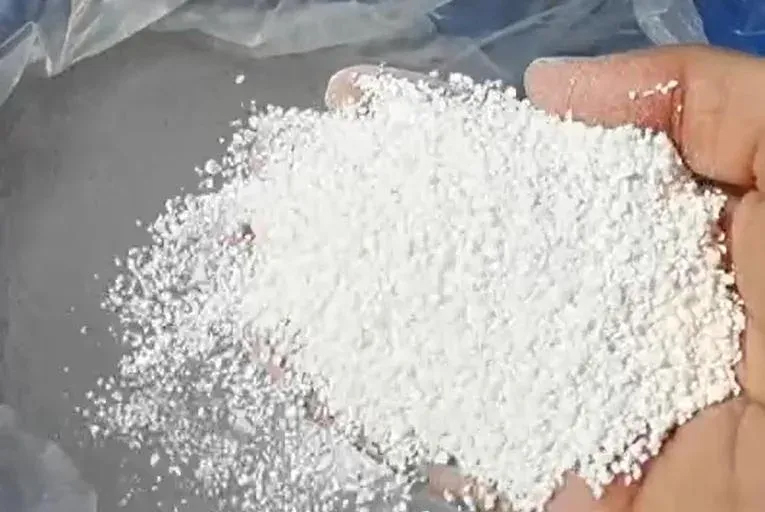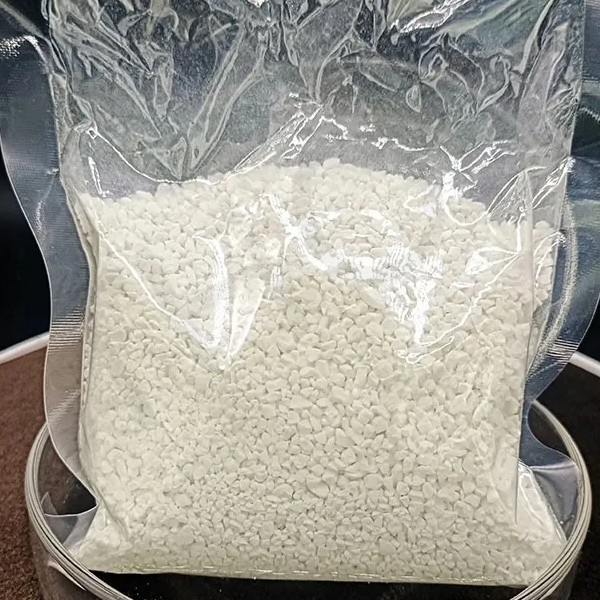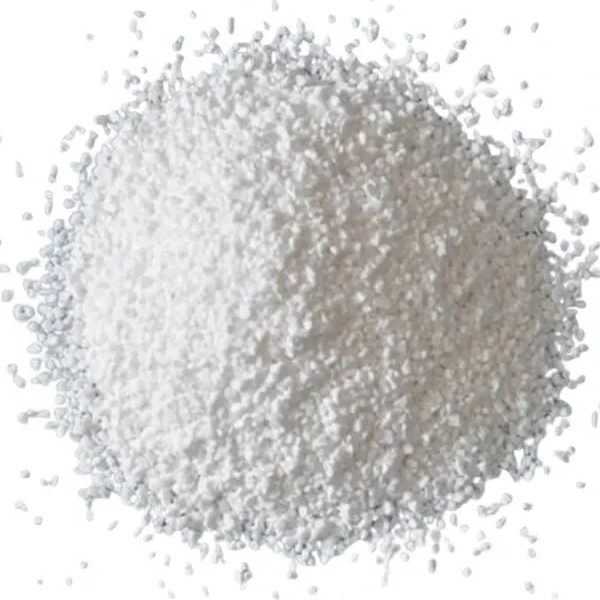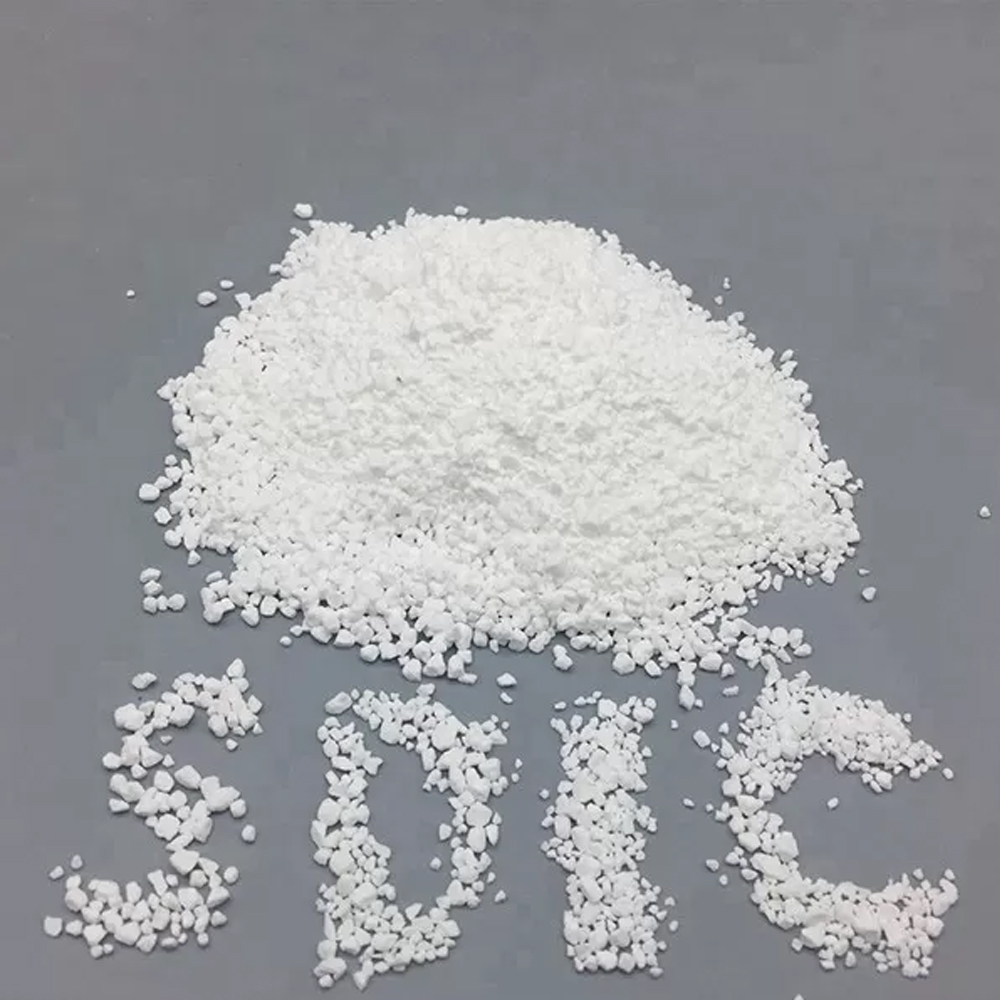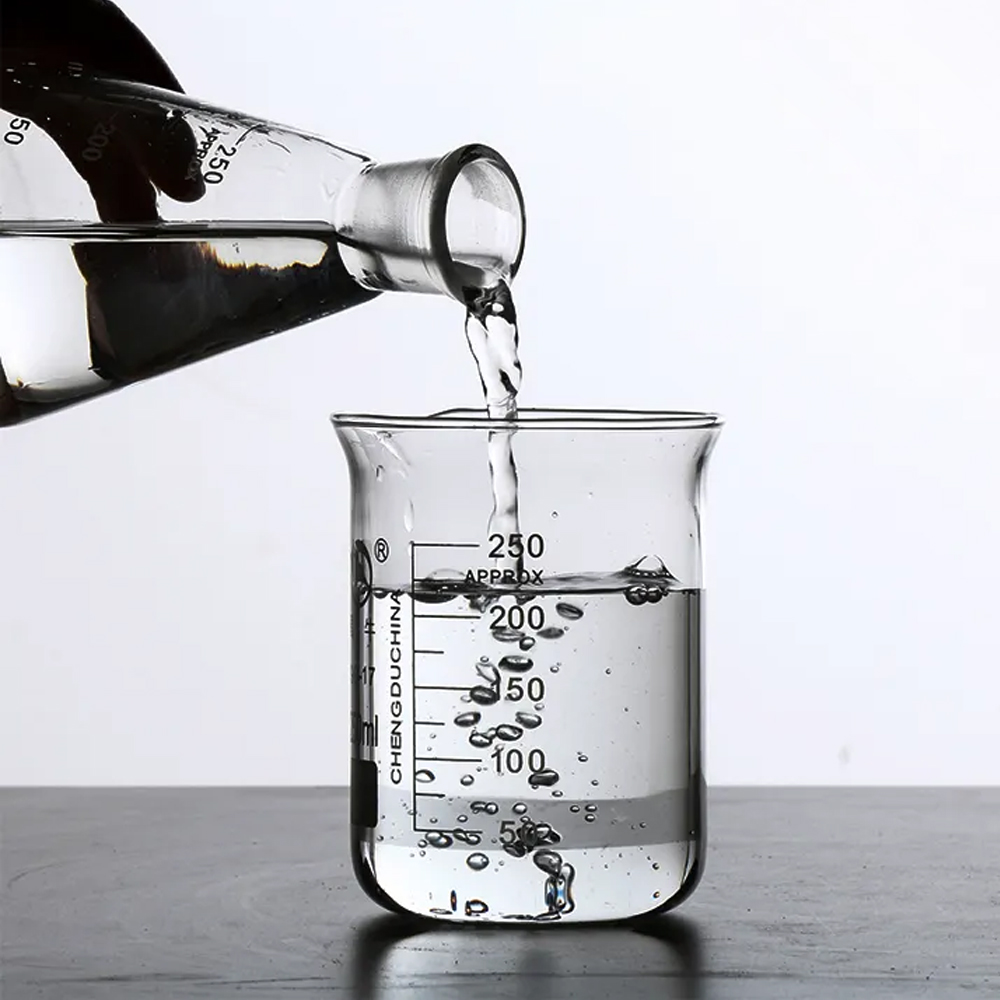Sodium Dichloroisocyanurate serves as a versatile compound with numerous applications:
Textile and Fabric Industry:
In the fabric sector, Sodium Dichloroisocyanurate is employed for textile bleaching and preventing wool from shrinking. It can also be used for disinfecting air and tableware in residential and restaurant settings.
Medical Field:
With exceptional cleaning and sterilization properties, Sodium Dichloroisocyanurate finds utility in the medical domain. It is capable of disinfecting and sterilizing hospital equipment for both surgical and minor procedures. Recent studies have also demonstrated its effectiveness in eradicating Hepatitis A and B viruses.
Scientific Research:
Sodium Dichloroisocyanurate is utilized in scientific research to demonstrate chemiluminescence. When decomposed by concentrated hydrogen peroxide, it emits a red light. Furthermore, when combined with diluted copper (II) sulfate solution, it produces a vibrant lilac precipitate known as sodium copper Dichloroisocyanurate.
Swimming Pools:
The compound is extensively used in swimming pools to eliminate bacteria, viruses, algae, and other pathogens. Its gradual release of chlorine makes it an ideal choice for pool maintenance. The convenience of tablets simplifies its handling and application.
Drinking-Water:
As previously mentioned, sodium dichloroisocyanurate is employed for purifying drinking water during emergency situations, such as natural disasters or flooding. It is also utilized in tablet form for sterilizing household drinking water.
Farming and Agriculture:
Due to its sustained chlorine release, sodium dichloroisocyanurate finds applications in agriculture. It effectively eliminates microbes from fruits, facilitating their transportation over long distances. Additionally, it is used in dairy products, rice seed treatment, fruit preservation, animal husbandry, silkworm rearing, and fishery.
Fish Farming:
Fish diseases can cause significant losses in fish farms, including reduced growth, increased feeding costs, and susceptibility to predators. Sodium Dichloroisocyanurate acts as a water purifier, eradicating bacteria and fungi commonly found in circulating water systems. Consequently, it helps mitigate disease outbreaks and enhance fish health on farms.
Sodium Dichloroisocyanurate proves to be a versatile compound with a wide range of applications in various industries. Its effectiveness in disinfection, sterilization, and water purification makes it a valuable component in multiple fields.


